|
Now that less than a week remains in the semester, I will write about my remaining class that I haven't written much if anything about yet. Natalie's ENGL 6882, "Advanced Fiction Writing Workshop", is not only my easiest class but also substantially easier than Charles' ENGL 4420, "Advanced Fiction Writing", which I took twice as an undergraduate - and not just because my skills have improved. Story requirements for Charles' class: "2 Workshopped stories - each between 8 and 15 pages, due one week before your workshop. Note on page lengths: you must reach the minimum page count to earn full credit; if your story is over 15 pages, include the whole story, but alert your peers to the extra reading. Be sure that you've edited your story and that additional pages are 'worth it.' Use a simple font, double space, and number the pages! Stories will be graded using the criteria below. These grades cannot be revised for a better score. It is possible to get a 'C+' on a story and still get an 'A' for the final grade in the class, assuming you get 'A's on everything else. All work must be new writing, not something you wrote in high school or workshopped in a previous class.... "This is a writing workshop, so there is no expectation that your stories should already be perfect. However, that does not mean sloppy work, or work that doesn't address the very basic elements of fiction is acceptable. Your story should: 1) be completely free of grammar and spelling errors, 2) avoid cliche, inflated or awkward prose, and the overuse of 'to be' verbs, 3) employ figurative language, setting details, and description 4), [sic] have a clear situation, central tension, crisis, and organizational structure (even if a complex, nonlinear one), 5) develop a consistent and appropriate point of view, and 6) offer substantial character development." Story requirements for Natalie's class: "You will submit two pieces of short fiction between 2000-4000 words. Please use Times New Roman, 12-point font, double-space, one-inch margins. If you exceed the word limit by 500 words or so, that is fine. "Please see below for the workshop schedule and your assigned due date. "You are free to write in any genre that you wish, including but not limited to fantasy, science fiction, crime, or literary fiction. "I support the artistic freedom of all students. I hope that you will explore the subject matter and style of writing that you're passionate about. If you have any concerns about your ideas, please reach out to me." Of course, the more stringent requirements in Charles' class pushed me to be a better writer, which helped me impress him to the point that he urged me to consider graduate school and teaching and has offered to be my thesis advisor. It was thus more of a challenge to impress Natalie, but I think I managed. In addition to writing our two major stories and doing one revision, we had to read and respond to some published stories throughout the semester. First we read Victor LaVelle's novella "The Ballad of Black Tom", which is an adaptation of H.P. Lovecraft's "The Horror at Red Hook" without all the rabid xenophobia. We had a choice to respond either with a traditional discussion post or a short fiction piece inspired by it, and I chose the latter and wrote another mini-sequel, and I posted it on my site here even though it doesn't entirely make sense without reading the novella first. Natalie liked it. Then we had to read stories from Carmen Maria Machado's debut collection Her Body and Other Parties, and the first one was called "The Husband Stitch" and when I looked it up to understand the weird symbolism that went over my head, I accidentally found out what a husband stitch allegedly is, and maybe I'm the only person in the world who didn't know that but if you don't know that, I recommend not looking it up. I did a normal boring discussion post for this one. Unfortunately, Machado is one of those authors who likes to titillate herself by writing about sex and calling it art, which I consider very pretentious. In an optional supplemental interview I read, she said, "I’m really interested in writing about sex.... I also like treating sex as a thing that happens. I wanted the sex to be mostly uncommented upon, just a part of the story, a part of the characters’ lives, as sex is in real life. I have characters in this book who have sex with both men and women, and I wanted the queerness and the liquidity of the sex to be uncommented upon also. It’s not a big deal - it just is what it is. Sometimes people describe 'The Husband Stitch' as erotica, and I like erotica, but that’s not erotica. The story is not serving the sex, the sex is serving the story." I think that if you have to explain why your writing isn't erotica, it's probably erotica. But nobody asked me. The next story, "Inventory", was even worse in that regard. It's literally a detailed recitation of all of the protagonist's sexual encounters that I never asked about. It does one clever thing, though - it weaves in a subplot about a virus (hahahahahahaha) which at first is just a news item playing on a television in the background, but by the end of the story has essentially caused the collapse of civilization and sent the protagonist to go live on an island by herself as she realizes that "the world will continue to turn, even with no people on it. Maybe it will even go a little faster." All this sex made me squeamish, less for moral reasons than because sex is really gross, so I vented my frustration by mocking the story with another mini-sequel. It was full of inappropriate puns and unsuitable for publication on my website, but I had no choice. It took some courage because I thought Natalie might get really upset with me for slut-shaming. But she didn't. "Lust for the Aliens" would be a cool band name. I'm torn between wanting to explain, and feeling like it's funnier with no additional context. As we progressed through the book, the stories became less horny and more bearable. The next one I responded to was "Especially Heinous", subtitled "272 Views of Law & Order: SVU". Despite the title and the subject matter of police officers, it wasn't bad, but it was incomprehensible. Forty pages of fictional episode synopses about ghost girls with bells in their eyes, alien abductions, thump-thump noises under the city, evil doppelgangers who do Benson's and Stabler's jobs better than they do, and various other weird crap that's obviously satirizing something somehow. This time, at least, all of my classmates were as confused as I was. In my mini-sequel, a man's pretentiously artistic wife has just made him watch a "Law & Order: SVU Seasons 1-12 Greatest Clips Compilation" Blu-Ray that she found in the bin at Wal-Mart, and he rants about how it made no sense while she tries to explain in vague terms why it's true art without letting on that she didn't understand it either. The dynamic between them was partially inspired by an old "Doonesbury" storyline. I suppose, too, I was making fun of art, but in an affectionate way, as a front for my jealousy at lacking the capacity to ever fully understand it. My writing will never be as dense with meaning as Machado's - though that's not necessarily a bad thing. Russ, a non-fiction writing professor, described my voice as "almost entirely stripped of metaphor" and "just unique enough that I'm nearly willing to read anything you're writing". So, you know, different strokes for different folks. This story was also well-received. We stopped doing responses and just had in-class discussions, because Natalie is very nice, and then we finished the book and read some other stuff. Most recently, we didn't have any readings but were instructed to write a flash piece, so I just took some inspiration from one of the Zoom chat conversation my graduate instructor cohort had during our practicum while Beth was talking. Who's to say that Satan might not have an occasional teensy-tiny good quality even if he is the most evil being in the universe? Even Hitler loved dogs, hated smoking, and got Brigitte Helm cleared of manslaughter charges. So, what about my actual two major fiction pieces? I know you're dying to hear how those went. For my first one I wasn't sure which direction to go, so I sought input from my friends and other people who are connected to me on Facebook even though they're not my friends. I mostly went with the first option, but the story needed something to justify its existence beyond the gimmick of switching traditional roles around. So I thought, wouldn't it be funny if the princess rescued the dragon by peacefully protesting? And that's how my story quickly evolved into the least subtle socio-political allegory ever written. I softened the sledgehammer of biting commentary with humor. I worried that it wasn't humorous enough, but the first comment about it in class was Mark saying, "You could almost point to a random spot on the page and find something funny." So that was nice. Of course, as is traditional, I received written peer feedback and then my classmates praised and critiqued it in class and then Natalie sent me her written comments. [Quote] Christopher, This story is a powerful blend of humor and social commentary. At its core, it’s about a young woman’s struggle to free her friend, a dragon who’s been mercilessly captured by Sir Nelson. The narrative seems to reflect on protests against police brutality today, emphasizing the concerted effort of activists to avoid violence as they fight for justice for victims of police shootings. It is also a story about the role of privileged people in movements for social justice. You have a talent for constructing humorous political commentary through a voice driven narrative. Penelope’s wit crackles from the beginning of the story as she eyes Nelson’s “pompous frilly outfit” and “the vein in his forehead” that “looks like it’s about to splatter me with something gross.” At the same time, I’m captivated by her expression of vulnerability throughout the narrative, particularly her insecurity around her privilege, evident in her questioning “Should I even be here?” Lines like this add depth and complexity to her sparkling character. It’s truly wonderful writing. Her act of violence also complicates her character, and we sense the desperation and panic with which she commits the act. It’s an intriguing climax to the story. In terms of revision, I think you can consider introducing her relationship with Milo from the beginning. It’d be helpful to gain a better understanding of her love for him and the details around his capture. Was she there? What’s public knowledge, and what has she learned through other channels? I think you can also heighten the tension in the narrative by developing her conflict/relationship with the other protesters, perhaps one or two in particular. How do they feel about rallying behind the princess? She doesn’t seem particularly interested in getting to know the grievances of the others. Perhaps they could confront her about this—forcing her to reflect upon herself and her role in the movement. You’ve mentioned that you don’t feel confident about developing the deeper meaning of a story. However, meaning develops organically when you attend to tension and character development. You’ve already introduced nuanced and interesting reflections on our current moment into this piece! The story will grower even richer if you spend a bit more time getting to know your characters. Natalie [Close quote] Having done a fantasy, now I obviously had to do a sci-fi. The only kernel of an idea I had for weeks was that aliens would visit and then subvert expectations of alien visitations. I thought about satirizing the stupidity of American partisan politics, but decided I didn't want to do another sledgehammer message. I thought about having one alien be a student abductor, but there's already a Pixar short about that. And then I thought: wouldn't it be hilarious if they were missionaries? And that was all I had until most of the story came to me one night as I was laying in bed trying to sleep, almost like a revelation. The story had some political jabs but mostly focused on religion and God. Not in a malicious way, mind you. It mocks biblical literalism and vents some steam about the problem of evil and all the crap going on, but at its heart it's just meant to be weird and funny and yes, irreverent, but not anti-religious or anti-theist in any way. I think I succeeded. One religious classmate wrote, "This piece goes to all the places that I would be scared to go, and I love that! I think this is such a potent thing for the right audiences (though I also think you’ll offend a fair number) – and I love the satire that comes through." The reception was once again positive, but part of our discussion in class (and I did ask for feedback on this) centered around whether the stereotype of a right-wing evangelical Southern farmer was too simple and perhaps too mean-spirited. For what it's worth, I had run the story by my colleague from Georgia (who isn't in this class) and she thought it was hilarious. Natalie was also a little concerned about one part where the protagonist says he sent the Mormons packing, and one of the aliens says, "I promise we're not as weird as them." She isn't from around here so I guess she wasn't aware of how members of The Church of Jesus Christ of Latter-day Saints, or at least the ones with backbones, like to laugh at themselves. And that part was directly inspired by a couple of jokes from "The Simpsons" anyway. [Quote]
Chris, This is such a hilarious and whimsical portrayal of the creation story and contemporary society. The satire is entertaining because it brings an unexpected cast of characters together—namely, Jackson, a right-winger with a strictly literal interpretation of the Bible, and two aliens who are here to offer him an opportunity to escape to a better planet. It’s hilarious to watch him witness the creation of the world through the compromise between Ziltoid and God. This is an effective plot, because it shows Jackson considering an entirely different point of view. It’s surprising and wonderful that he consents to watching this interaction unfold. Perhaps he’s more open-minded and curious than meets the eye. Second, you offer such irreverent and humorous characterizations of God as a somewhat simple-minded being obsessed with dinosaurs. I laughed aloud at his ridiculous pantomime of a dinosaur feeding on another. In contrast, Ziltoid’s wise and imaginative, for instance when she states, “Art is about creativity! Not doing the same straggling[*] thing over and over again!” Their entire interaction is dynamic, and ultimately, illuminates God’s limitations as the creator of the world—his mean-spiritedness and penchant for revenge. Forced to compromise, he builds the world using sub-par standards and exhibits little compassion for humans. This depiction speaks to the chaos and hardship humanity endures today. In terms of revision, I think you should consider developing your portrayal of Jackson. To make the story even more engaging, it would be helpful if you complicated his character. First of all, it’d be wonderful to witness his reactions to the vision in greater detail. What is so troubling about what he sees? There’s a ton of potential for humor here, and it could help readers connect with him even more. After all, fictional characters are most exciting when they offer a fresh and exciting vision of humanity. Furthermore, I think you can heighten the humor by subverting our expectations with this character. It makes sense that a simple-minded guy like Jackson would pass up an opportunity to escape to a better place. But I think you should dive back into the final scene and rethink his interaction with the aliens. Slow down and investigate his reaction to what he’s seen. What if he doesn’t dismiss it outright? What if he asks questions? After all, it’s perfectly understandable that he wouldn’t hop into their spaceship! Who would? I found myself relating to Jackson in this instance, and I think you can explore this further. Show him thinking through this option with the aliens. Finally, I think you should explore other possibilities for his decision. What if he joins them? That would be such a wild moment, full of wonder and humor. There’s so much potential here! Dive back in and explore it. Natalie [Close quote] * The word was actually "stragging", a pseudo-swear that I made up for previous sci-fi works, but it confused some people and I should have made up a more distinctive one.
0 Comments
Leave a Reply. |
"Guys. Chris's blog is the stuff of legends. If you’re ever looking for a good read, check this out!"
- Amelia Whitlock "I don't know how well you know Christopher Randall Nicholson, but... he's trolling. You should read his blog. It's delightful." - David Young About the AuthorC. Randall Nicholson is a white cisgender Christian male, so you can hate him without guilt, but he's also autistic and asexual, so you can't, unless you're an anti-vaxxer, in which case the feeling is mutual. This blog is where he periodically rants about life, the universe, and/or everything. Archives
July 2024
Categories
All
|
- Home
- Blog
-
My Literary Works
- Comics by C. Randall Nicholson >
-
Short Stories by C. Randall Nicholson
>
- Childish Stories
- My Dearest Catherine
- It's Really Cold Out There
- Walter Mitty - The Sixth Daydream
- Jesus is a Liberal
- El Coronel - Epílogo
- A Couple of Very Cynical Parables
- Interview with the Ruler of the World (Me)
- The Star Wars Missionary
- Chelise
- Traumfrau
- All Hands on Deck
- It Ain't Ogre Till It's Ogre
- Black Tom: The Unauthorized Encore
- Brittany and the Bear
- Lunatics: A Space Girls Story
- Adventures in the FDR >
- Poems and Songs by C. Randall Nicholson >
-
Essays by C. Randall Nicholson
>
- Childish Essays by C. Randall Nicholson
- Los Braceros
- The Great Pacific Garbage Patch
- The Witches of "Macbeth"
- Evita
- The Second Amendment to the Constitution: Why it is Important to Our Nation
- USU Honors Program Application Essay
- The Giraffe Deception
- Member Missionary Message
- I'm Just a Little Unwell: Coping with Asperger's Syndrome
- Dating Seminar
- An Open Letter to Critics of The Church of Jesus Christ of Latter-day Saints
- How Can any Intelligent Person Be a Mormon?
- Faith and Doubt in My Life
- Discarding Dated Dinosaur Dogmas: Robert T. Bakker and the Dinosaur Renaissance
- Religion, Science, and Art: Elements of the Gospel of Truth
- Why Latter-day Saints Should Embrace Evolution
- Daoism
- Spiritual Autobiography
- From the East: Hinduism and Islam as Compared to My Western Faith Tradition through Poetry
- In Defense of Pickup Lines
- Ass Burgers
- Chasing Kelsey
- Both of the Things Wrong with Charlotte Temple
- Sir Thomas More's Critiques and Commendations for Catholicism
- The Legend of Christor
- How Eugene England Helped Me Transform My Testimony
- Graduate School Statement of Intent
- "Please Join with Us Now in Common Purpose": A Discourse Analysis
- Legos and Gender
- Things That Rhyme with "Elise"
- I Want to Believe: The Persistence of Alien Folklore
-
Reviews by C. Randall Nicholson
>
- Review of "Howard the Duck"
- Review of "Letter to a Christian Nation"
- Review of the LDS Institute's "Uncommon Hour"
- Review of "Madagascar 3"
- Review of "Dating Doctor David Coleman"
- Review of "David and the Magic Pearl"
- Review of the "Mata Nui Online Game (MNOG)"
- Review of "Evolution and Mormonism"
- Review of "Callahan's Crosstime Saloon" (Game)
- Review of "Modern Romance"
- Review of "Solo: A Star Wars Story"
- Review of "The Legend of Zelda: Ocarina of Time"
- Review of "The Book of Mormon" (Musical)
- Review of Jenson Books
- Review of "Live Not By Lies"
-
Literary Fragments by C. Randall Nicholson
>
- Childish Scraps
- The Adventures of Nichch Bror
- Reaching (for the Stars)
- Boys vs. Girls Book 1: The Conflict >
- Dave is a Square
- Star Wreck
-
The Legend of Aaron LaBarr
>
- 1 Marauders of the Mythical Man Chapter One
- 1 Marauders of the Mythical Man Chapter Two
- 1 Marauders of the Mythical Man Chapter Three (Unfinished)
- 1 Marauders of the Mythical Man Chapter Four (Unfinished)
- 2 Crusaders of the Crystalline Chronostone Chapter One (Unfinished)
- 2 Crusaders of the Crystalline Chronostone Chapter Two (Unfinished)
- 2 Crusaders of the Crystalline Chronostone Chapter Three (Unfinished)
- 2 Crusaders of the Crystalline Chronostone Miscellaneous
- 3 Pursuers of the Priceless Power Chapter Two (Unfinished)
- The War >
- The Space Detective
- Skin Deep
- The Sword of Laban >
- LDS Church History Timeline
- Jennifer and Lance
- Logan YSA 36th Ward 2018 History
- Unsent Correspondence by C. Randall Nicholson
- Correspondence Regarding the Worst Day of My Life So Far
-
Indiana Jones and the Saucer Men from Mars
>
- Indiana Jones and the Saucer Men from Mars - Prologue
- Indiana Jones and the Saucer Men from Mars - Chapter One
- Indiana Jones and the Saucer Men from Mars - Chapter Two
- Indiana Jones and the Saucer Men from Mars - Chapter Three
- Indiana Jones and the Saucer Men from Mars - Chapter Four
- Indiana Jones and the Saucer Men from Mars - Chapter Five
- Indiana Jones and the Saucer Men from Mars - Chapter Six
- Indiana Jones and the Saucer Men from Mars - Chapter Seven
- Indiana Jones and the Saucer Men from Mars - Chapter Eight
- Indiana Jones and the Saucer Men from Mars - Chapter Nine
- Indiana Jones and the Saucer Men from Mars - Chapter Ten
- Indiana Jones and the Saucer Men from Mars - Chapter Eleven
- Indiana Jones and the Saucer Men from Mars - Chapter Twelve
- Indiana Jones and the Saucer Men from Mars - Chapter Thirteen
- Indiana Jones and the Saucer Men from Mars - Epilogue
- Behind the Scenes of "Indiana Jones and the Saucer Men from Mars"
-
Indiana Jones and the Monkey King
>
- Indiana Jones and the Monkey King - Prologue
- Indiana Jones and the Monkey King - Chapter One
- Indiana Jones and the Monkey King - Chapter Two
- Indiana Jones and the Monkey King - Chapter Three
- Indiana Jones and the Monkey King - Chapter Four
- Indiana Jones and the Monkey King - Chapter Five
- Indiana Jones and the Monkey King - Chapter Six
- Indiana Jones and the Monkey King - Chapter Seven
- Indiana Jones and the Monkey King - Chapter Eight
- Indiana Jones and the Monkey King - Chapter Nine
- Indiana Jones and the Monkey King - Chapter Ten
- Indiana Jones and the Monkey King - Chapter Eleven
- Indiana Jones and the Monkey King - Chapter Twelve
- Indiana Jones and the Monkey King - Chapter Thirteen
- Indiana Jones and the Monkey King - Chapter Fourteen
- Indiana Jones and the Monkey King - Epilogue
- Running Logan Canyon
- Crusaders of the Chrono-Crystal >
-
About Me
-
About Mormons
- Why Are Mormons So Hot?
- LDS Temples
-
LDS Scriptures
>
- Growth of the LDS Church
-
LDS Racial History
>
- The Lamanite Curse in the Book of Mormon
- The LDS Church and Native Americans Nineteenth Century
- The LDS Church and Native Americans Twentieth Century
- The LDS Church and Native Americans Twenty-first Century
- Black Latter-day Saints Before June 1978
- Abner Howell, Black Latter-day Saint
- Dr. Lowry Nelson vs. the LDS First Presidency
- Race Problems - As They Affect the Church
- Ezra Taft Benson vs. the Civil Rights Movement
- The LDS Church and Slavery
- The LDS Church and Interracial Marriage
- The LDS Church and Black People: Historical Context (Pre-1830)
- The LDS Church and Black People 1830-1837
- The LDS Church and Black People 1838-1842
- The LDS Church and Black People 1843-1844
- The LDS Church and Black People 1845-1848
- The LDS Church and Black People 1849-1852
- The LDS Church and Black People 1853-1860
- The LDS Church and Black People 1861-1868
- The LDS Church and Black People 1869-1878
- The LDS Church and Black People 1879-1889
- The LDS Church and Black People 1890-1899
- The LDS Church and Black People 1900-1903
- The LDS Church and Black People 1904-1907
- The LDS Church and Black People 1908-1912
- The LDS Church and Black People 1913-1930
- The LDS Church and Black People 1931-1946
- The LDS Church and Black People 1947
- The LDS Church and Black People 1948-1954
- The LDS Church and Black People 1955-1959
- The LDS Church and Black People 1960
- The LDS Church and Black People 1961-1962
- The LDS Church and Black People 1963
- The LDS Church and Black People 1964
- The LDS Church and Black People 1965
- The LDS Church and Black People 1966
- The LDS Church and Black People 1967
- The LDS Church and Black People 1968
- The LDS Church and Black People 1969
- The LDS Church and Black People 1970
- The LDS Church and Black People 1971-1972
- The LDS Church and Black People 1973-1975
- The LDS Church and Black People 1976-1977
- The LDS Church and Black People 1978
- The LDS Church and Black People 1979-1984
- The LDS Church and Black People 1985-1988
- The LDS Church and Black People 1989-1994
- The LDS Church and Black People 1995-1998
- The LDS Church and Black People 1999-2002
- The LDS Church and Black People 2003-2006
- The LDS Church and Black People 2007-2010
- The LDS Church and Black People 2011-2012
- The LDS Church and Black People 2013-2015
- The LDS Church and Black People 2016-2017
- The LDS Church and Black People 2018
- The LDS Church and Black People 2019
- The LDS Church and Black People 2020
- The LDS Church and Black People 2021
- The LDS Church and Black People: Moving Forward
- The Bruce R. McConkie Fan Page
- LDS Culture Pet Peeves
- Why I Wholeheartedly Accept Organic Evolution >
- Are the General Authorities Human?
- A Brief History of LDS Polygamy
- A Brief History of Women in the LDS Church >
- Is the LDS Church Homophobic? >
- The LDS Church and Islam / كنيسة يسوع المسيح والإسلام
- Heavenly Mother
- Mormons in America
- The Tragedy of Kip Eliason
- Is the Book of Mormon a Fraud
- Joseph Smith's Prophecies >
- Mormonism's Infallible Prophets
- A Response to the Address "The Real Meaning of the Atonement"
- Affection in Marriage
- Is There No Help for the Widow's Son?
-
An Address to All Believers in Christ
>
- An Address to All Believers in Christ - Chapter I
- An Address to All Believers in Christ - Chapter II
- An Address to All Believers in Christ - Chapter III
- An Address to All Believers in Christ - Chapter IV
- An Address to All Believers in Christ - Chapter V
- An Address to All Believers in Christ - Chapter VI
- An Address to All Believers in Christ - Chapter VII
- An Address to All Believers in Christ - Chapter VIII
- An Address to All Believers in Christ - Chapter IX
- An Address to All Believers in Christ - Chapter X
- An Address to All Believers in Christ - Chapter XI
- An Address to All Believers in Christ - Chapter XII
-
These Amazing Mormons!
>
- Introduction
- I. Meeting the Mormons
- II. Holy Books
- III. The Capital of Mormondom
- IV. Industrial Adaptation
- V. Church Organization
- VI. The Priesthood
- VII. Relief Society
- VIII. Church Welfare Program
- IX. The Word of Wisdom
- X. Business, Labor, Politics
- XI. Architecture
- XII. Education
- XIII. Their Missionary System
- XIV. Propaganda
- XV. The Family
- XVI. Sunday School
- XVII. Primary
- XVIII. Young People
- XIX. The Temple
- XX. Polygamy
- About the Author
- Anti-Mormonism >
- Why I Left the Church of Jesus Christ of Latter-day Saints
-
Whatever
- The Milo Nicholson Memorial Page
- My Unsolicited Spiel on Abortion
- Anti-Vaxxers Make Me Sick
- In Defense of Pedophiles
- The Kyle Cootware Memorial Page
- My Artistic Creations
- Women >
- How to Make a Movie
- The Progressive Bill of "Rights"
- Back in the USSR
- Why We Should Support the War on Drugs
- Why I Love India
- The Joys of DOSBox
- The Hugh Hefner Memorial Page
- Why Engagement Rings are Stupid
- Creating a Pedagogy of Critical Thinking and Student Agency
- Karzahni
- Contact
- Links
crandallnicholson at gmail dot com
My other websites:
Amazon Author Page
Life, the Universe, and Everything Wiki
Entebbe Alpha & Omega Development Organization Uganda
Everything that can be copyrighted by me is © C. Randall Nicholson (he/him) 2010-2024, and everything that cannot is not. As should be obvious to any reasonable person, this website is not owned by, endorsed by, sponsored by, accepting bribes from, or affiliated in any way with The Church of Jesus Christ of Latter-day Saints, Utah State University, any political parties or candidates, Lucasfilm, Nintendo, the Irish Mafia, or anyone else except me. The inclusion of external sources is not an endorsement of every viewpoint or claim contained therein. Due to government restrictions, this website is not available in Abbudin, Agrabah, Aidnaryk, Aldastan, Aldovia, Aleshar, Algaria, Alphenlicht, Andalasia, Ankh-Morpork, Arcium, Arendelle, Arendia, Arjuna, Armaeth, Artakha, Artidax, Astel, Atan, Attolia, Avalon, Beltrazo, Benlucca, Berzerkistan, Bialya, Blefuscu, Borduria, Borogravia, Brovania, Brynnel, Bulungi, Calatia, Caldonia, Cammoria, Carbombya, Carnolitz, Casbahmopolis, Catan, Cherek, Chima, Chyrellos, Cthol Murgos, Cynesga, Cythera, Daconia, Dacovia, Däfos, Dalasia, Dalsona, Daxia, Deira, Delchin, Deltora, Derka-derkastan, Destral, Dinotopia, Drasnia, Duban, Dubatio, Eddis, Edom, Eire, Elbonia, Elenia, Enchancia, Equatorial Kundu, Equestria, Erewhon, Flatland, Florin, France, Freedonia, Fuh, Gamelon, Ganesia, Gar og Nadrak, Genosha, Genovia, Gilead, Goona, Gorch, Grand Fenwick, Guilder, Gwyliath, Haganistan, Holodrum, Honalee, Hortensia, Hyrule, Hytopia, Illyria, Ishtar, Jedera, Jemal, Jenno, Jiardasia, Jueland, Kadir, Kalynthia, Kamistan, Kantaria, Katakor, Katurrah, Kazhistan, Khairpura-Bhandanna, Khakistan, Khemed, Kibalakaboo, Koholint, Kookatumdee, Koridai, Krakozhia, Kumranistan, Kunami, Kyrat, Kyrzbekistan, Labrynna, Lamorkand, Latveria, Lemmink, Lichtenslava, Lilliput, Lorule, Lotharia, Lubovosk, Maldonia, Maragor, Mata Nui, Matar, Medici, Mesociam, Metru Nui, Mishrak ac Thull, Moldera, Monterria, Muldavia, Nambutu, Narnia, Naruba, Nehwon, North Azbaristan, Nuevo-Rico, Nutopia, Nyissa, Nynrah, Odina, Okoto, Oriana, Oz, Pallia, Panem, Pappyland, Patusan, Pelosia, Penglia, Perivor, Pilchardania, Pincoya, Pingo-Pongo, Poldavia, Poptropica, Pottsylvania, Quelf, Qumar, Qumran, Qurac, Ramat, Rendor, Riva, Ronguay, Ruritania, Samavia, San Lorenzo, San Theodoros, São Madrigal, São Rico, Scatland, Schmuldavia, Sendaria, Shamar, Slafka, Slokovia, Slorenia, Sodor, Sokovia, Sondonesia, Sosaria, Sounis, South Azbaristan, Stelt, Strong Badia, Subrosia, Syldavia, Sylvania, Tamul, Tanol, Tarenta, Tashistan, Tega, Terabithia, Termina, Tetaragua, Thalesia, Thatotherstan, Thulahn, Tolemac, Tolnedra, Tomania, Transia, Trazere, Turaqistan, Turmezistan, Ul'dah, Ulgoland, the United States of Auradon, Utopia, Valesia, Velattiane, Voresbo, Voya Nui, Wadata, Wadiya, Wakanda, Westeros, Wongo, Wrenly, Xanth, Xia, Zakaz, Zamad, Zamunda, Zaraq, Zekistan, or Zenovia. I apologize for the inconvenience.
My other websites:
Amazon Author Page
Life, the Universe, and Everything Wiki
Entebbe Alpha & Omega Development Organization Uganda
Everything that can be copyrighted by me is © C. Randall Nicholson (he/him) 2010-2024, and everything that cannot is not. As should be obvious to any reasonable person, this website is not owned by, endorsed by, sponsored by, accepting bribes from, or affiliated in any way with The Church of Jesus Christ of Latter-day Saints, Utah State University, any political parties or candidates, Lucasfilm, Nintendo, the Irish Mafia, or anyone else except me. The inclusion of external sources is not an endorsement of every viewpoint or claim contained therein. Due to government restrictions, this website is not available in Abbudin, Agrabah, Aidnaryk, Aldastan, Aldovia, Aleshar, Algaria, Alphenlicht, Andalasia, Ankh-Morpork, Arcium, Arendelle, Arendia, Arjuna, Armaeth, Artakha, Artidax, Astel, Atan, Attolia, Avalon, Beltrazo, Benlucca, Berzerkistan, Bialya, Blefuscu, Borduria, Borogravia, Brovania, Brynnel, Bulungi, Calatia, Caldonia, Cammoria, Carbombya, Carnolitz, Casbahmopolis, Catan, Cherek, Chima, Chyrellos, Cthol Murgos, Cynesga, Cythera, Daconia, Dacovia, Däfos, Dalasia, Dalsona, Daxia, Deira, Delchin, Deltora, Derka-derkastan, Destral, Dinotopia, Drasnia, Duban, Dubatio, Eddis, Edom, Eire, Elbonia, Elenia, Enchancia, Equatorial Kundu, Equestria, Erewhon, Flatland, Florin, France, Freedonia, Fuh, Gamelon, Ganesia, Gar og Nadrak, Genosha, Genovia, Gilead, Goona, Gorch, Grand Fenwick, Guilder, Gwyliath, Haganistan, Holodrum, Honalee, Hortensia, Hyrule, Hytopia, Illyria, Ishtar, Jedera, Jemal, Jenno, Jiardasia, Jueland, Kadir, Kalynthia, Kamistan, Kantaria, Katakor, Katurrah, Kazhistan, Khairpura-Bhandanna, Khakistan, Khemed, Kibalakaboo, Koholint, Kookatumdee, Koridai, Krakozhia, Kumranistan, Kunami, Kyrat, Kyrzbekistan, Labrynna, Lamorkand, Latveria, Lemmink, Lichtenslava, Lilliput, Lorule, Lotharia, Lubovosk, Maldonia, Maragor, Mata Nui, Matar, Medici, Mesociam, Metru Nui, Mishrak ac Thull, Moldera, Monterria, Muldavia, Nambutu, Narnia, Naruba, Nehwon, North Azbaristan, Nuevo-Rico, Nutopia, Nyissa, Nynrah, Odina, Okoto, Oriana, Oz, Pallia, Panem, Pappyland, Patusan, Pelosia, Penglia, Perivor, Pilchardania, Pincoya, Pingo-Pongo, Poldavia, Poptropica, Pottsylvania, Quelf, Qumar, Qumran, Qurac, Ramat, Rendor, Riva, Ronguay, Ruritania, Samavia, San Lorenzo, San Theodoros, São Madrigal, São Rico, Scatland, Schmuldavia, Sendaria, Shamar, Slafka, Slokovia, Slorenia, Sodor, Sokovia, Sondonesia, Sosaria, Sounis, South Azbaristan, Stelt, Strong Badia, Subrosia, Syldavia, Sylvania, Tamul, Tanol, Tarenta, Tashistan, Tega, Terabithia, Termina, Tetaragua, Thalesia, Thatotherstan, Thulahn, Tolemac, Tolnedra, Tomania, Transia, Trazere, Turaqistan, Turmezistan, Ul'dah, Ulgoland, the United States of Auradon, Utopia, Valesia, Velattiane, Voresbo, Voya Nui, Wadata, Wadiya, Wakanda, Westeros, Wongo, Wrenly, Xanth, Xia, Zakaz, Zamad, Zamunda, Zaraq, Zekistan, or Zenovia. I apologize for the inconvenience.
Proudly powered by Weebly

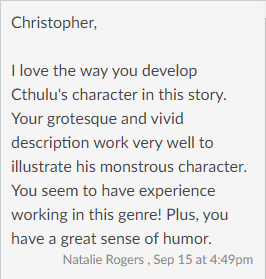
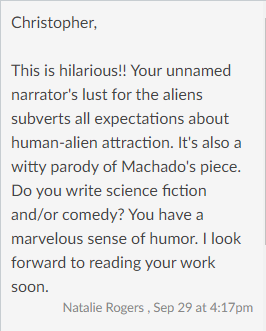

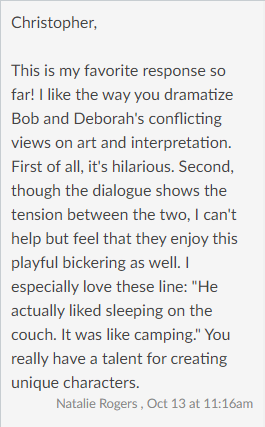
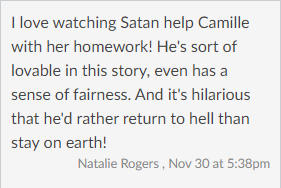
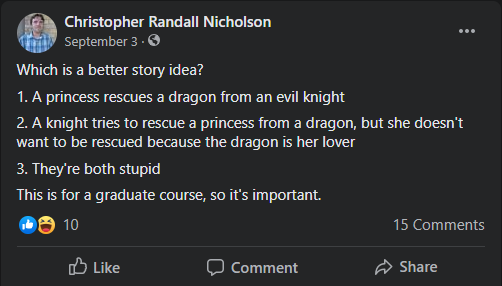
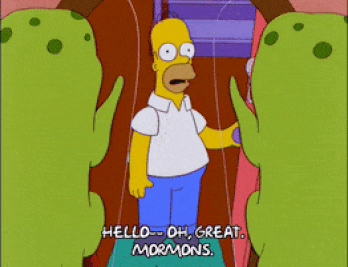
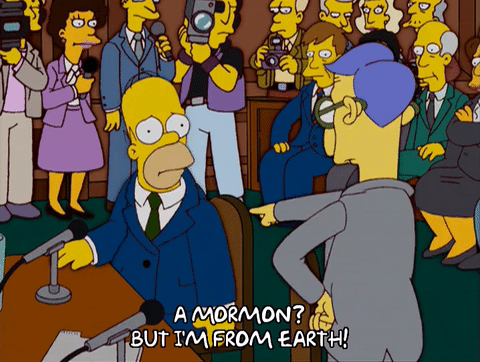


 RSS Feed
RSS Feed
